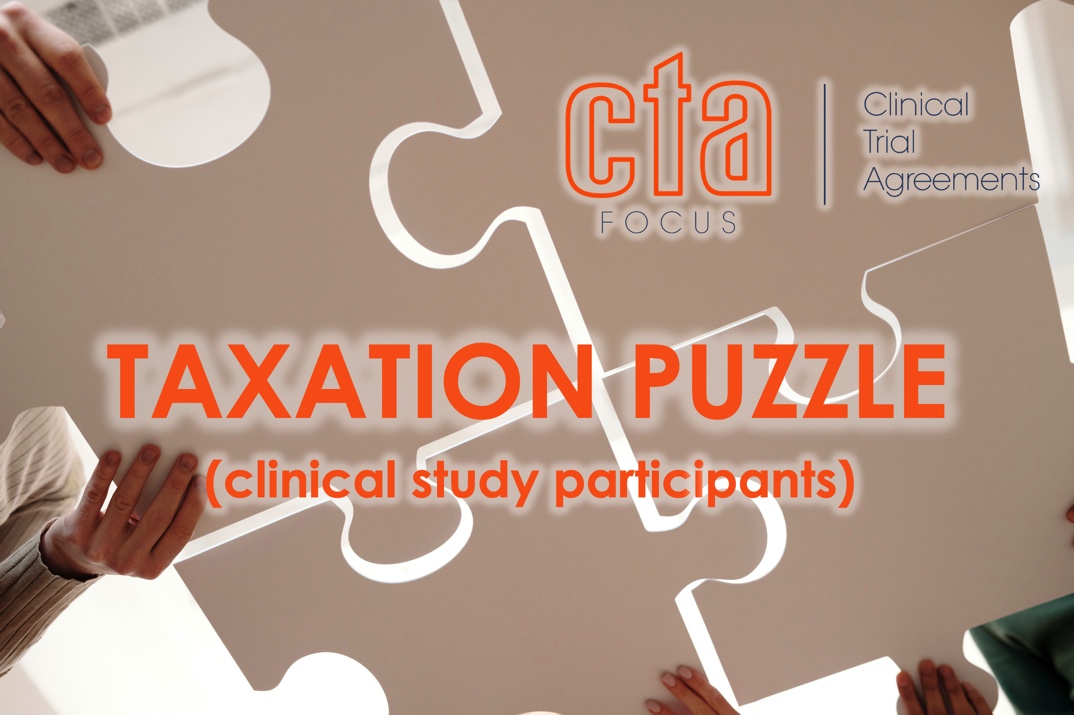
TAXATION PUZZLE (clinical study participants)
Any expense reimbursement to the clinical trial participants (patients or healthy volunteers) have always been a topic for a never-ending discussion between the clinical trial market stockholders. Such payments imply ethical, technical, logistical, and surely financial aspects that are not always clear and vary from country to country, or even from site to site.
Another ‘grey zone’ is taxability of such payments – must the participants pay taxes from the amounts they receive in connection with their reimbursements related to clinical trials? The general answer is surprisingly predictable – yes and no.
The reimbursements for the clinical trial participants can be categorized as it follows: stipends (payments to volunteers for Phase I studies, payment for time dedicated to the trial, etc.), and reimbursements (of costs patient has while participating in clinical trials, such as travel, meals, accommodation, loss of income etc.). We can also differentiate between direct (done by sponsor) and indirect reimbursements, when another third party (sponsor’s vendor or the sites) compensates the subject for expenses in relation to travel, meals, accommodation, parking, loss of wage, etc.
All these three categories may be subject to different taxation regimes.
Across European countries we evidence that stipends are in most cases taxable as these are considered generally above a threshold participant’s income. In some countries, however, they can be tax free.
When it comes to reimbursement of expenses, the majority of countries don’t consider them taxable. Yet, for some Eastern European countries this is still an open question that is not clearly regulated by the fiscal legislation.
There is no unified approach to indirect reimbursements either. Only a few countries have a clear position on whether indirect reimbursement represents income or not. In some countries the approach may vary depending on the exact subject of reimbursement and their regulatory approval status. In other countries, tax regulations oblige the payor – site, sponsor or designee – to specific reporting (for 6 years for example in Ireland) or even preparing tax certificates for study participants.
We recommend the Sponsors to consult local experts at all times when starting up a clinical trial that involves payments to the participants in a particular country. Taxation is not something that is only participant’s business since the Sponsor may also have tax reporting requirements.
We at CTA Focus closely monitor the development of this topic and are happy to help our clients to solve the taxation puzzle in any country.
